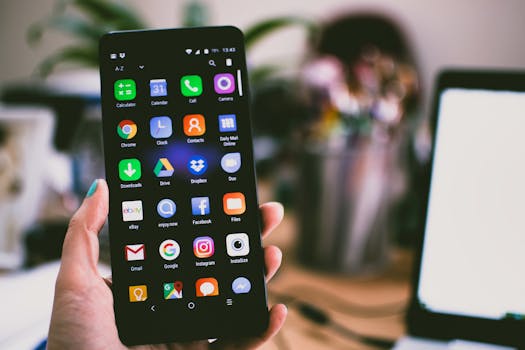Innovations in Mobile Technology
Mobile technology has drastically transformed how we communicate, work, and entertain ourselves. Over the past few decades, we've seen remarkable advancements that have turned mobile devices from simple communication tools into powerful multifunctional gadgets. From the first mobile phones to the latest smartphones equipped with AI and 5G capabilities, the evolution of mobile technology continues to shape our daily lives.

The Evolution of Mobile Hardware
The journey of mobile technology began with bulky, brick-sized phones in the 1980s. These early devices were primarily used for voice communication. However, significant innovations in hardware have led to smaller, more powerful, and feature-rich devices.
One of the most notable advancements was the introduction of smartphones. The iPhone, launched in 2007 by Apple, revolutionized mobile technology by combining a phone, an iPod, and an internet communicator into one device. This innovation set a new standard for what consumers expected from their phones.
Modern smartphones are now equipped with high-resolution cameras, powerful processors, and extensive storage capacities. Companies like Samsung and Apple continuously push the boundaries of what is possible with each new release.
- High-Resolution Cameras
- Powerful Processors
- Extensive Storage Capacities
Advancements in Mobile Software
Hardware alone isn't responsible for the incredible functionality of modern mobile devices. Software advancements have played a crucial role in enhancing user experience and expanding capabilities.
Operating systems like Android and iOS have become more intuitive and user-friendly over time. They support a wide range of applications that cater to various needs, from social media to productivity tools.
Moreover, artificial intelligence (AI) has been integrated into mobile software to offer personalized experiences. Virtual assistants like Siri and Google Assistant can perform tasks ranging from setting reminders to controlling smart home devices.
Connectivity Breakthroughs: From 4G to 5G
The leap from 4G to 5G connectivity marks one of the most significant advancements in mobile technology. 5G promises faster download speeds, lower latency, and the ability to connect more devices simultaneously.
This new generation of wireless technology opens up possibilities for innovations such as autonomous vehicles, remote surgeries, and enhanced virtual reality experiences. According to a report by Qualcomm, 5G is expected to generate up to $13.2 trillion in global economic output by 2035.
| Feature | 4G | 5G |
|---|---|---|
| Download Speed | 100 Mbps | Up to 10 Gbps |
| Latency | 30-50 ms | 1 ms or lower |
| Device Connectivity | Tens of thousands per square mile | Millions per square mile |
The Role of Mobile Apps in Daily Life
The proliferation of mobile apps has significantly impacted how we interact with our devices and manage our daily tasks. App stores offer millions of applications that serve various functions, including communication, entertainment, education, and health.
For example, apps like WhatsApp and Zoom have become essential tools for communication, especially during the COVID-19 pandemic. Streaming services such as Netflix and Spotify provide endless entertainment options at our fingertips.
Sustainability in Mobile Technology
Sustainability is becoming an increasingly important aspect of mobile technology. Manufacturers are focusing on creating eco-friendly products by using recycled materials and reducing electronic waste.
Companies like Apple have committed to becoming carbon neutral by 2030. Initiatives include using recycled aluminum in their products and promoting recycling programs for old devices.
The Future of Mobile Technology
The future of mobile technology looks promising with ongoing innovations aimed at enhancing user experience and addressing global challenges. Foldable screens are making a comeback, providing users with larger displays without compromising portability.
Advancements in augmented reality (AR) and virtual reality (VR) are expected to further integrate into everyday mobile use. These technologies offer immersive experiences for gaming, education, and professional training.
As hardware becomes more powerful and software more intelligent, our reliance on these devices will only deepen.
The transition from brick-sized phones to sleek smartphones has been remarkable. With continuous advancements in hardware, software, connectivity, sustainability efforts, and emerging technologies like AR and VR, the future holds endless possibilities for further innovations in mobile technology.